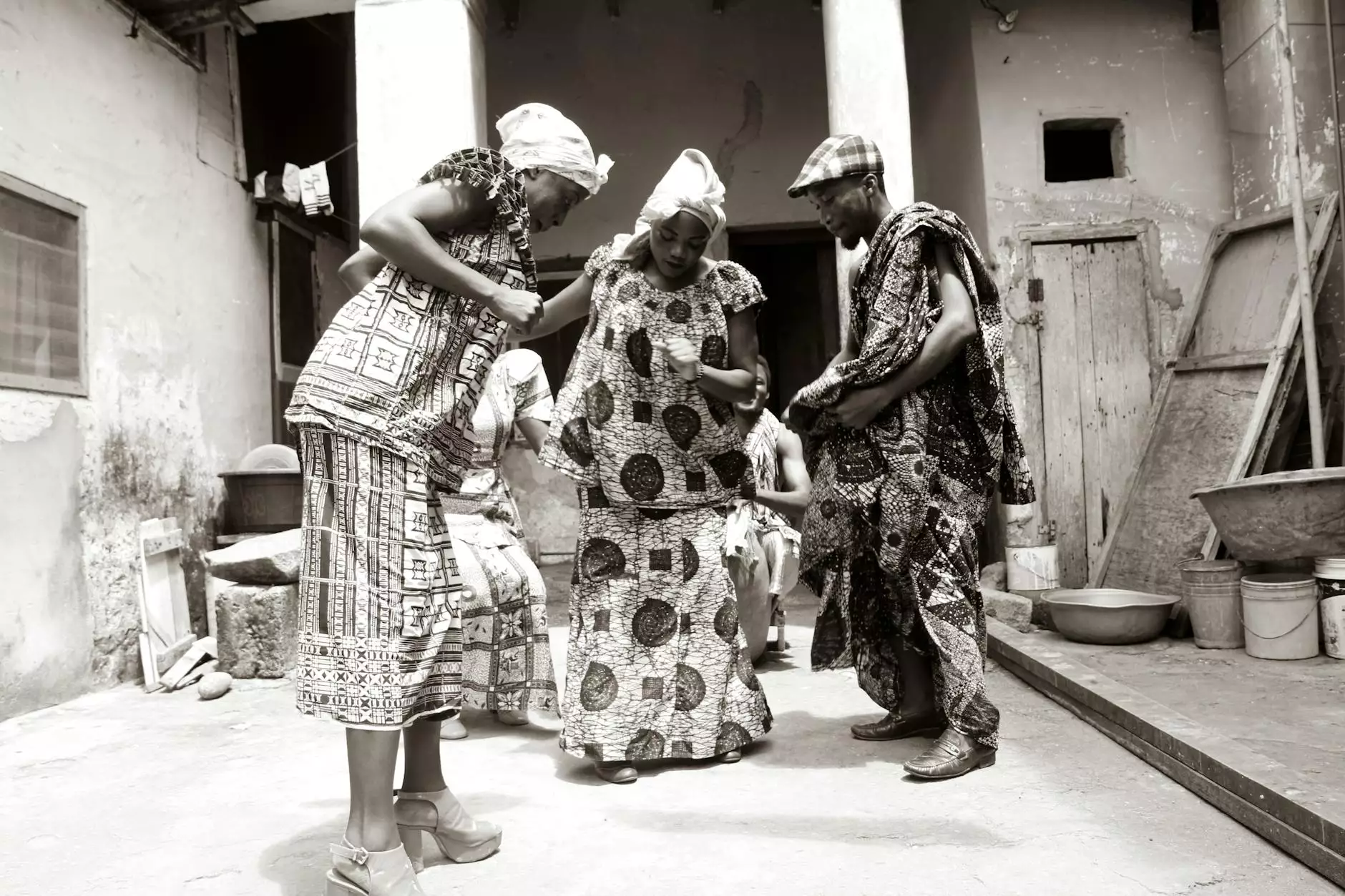The Amazing Products of Ghana: A Comprehensive Guide

Introduction
Ghana, a jewel located in West Africa, has a wealth of products that reflect its rich cultural heritage and natural abundance. The products of Ghana include unique agricultural commodities, artistic crafts, and valuable natural resources. Understanding these products not only highlights Ghana's economic potential but also showcases the creativity and resilience of its people.
1. Agricultural Products
Agriculture is a significant part of Ghana's economy, with various products that are essential both locally and internationally. Here are some of the key agricultural products:
- Cocoa: Ghana is the second-largest producer of cocoa in the world, with a global reputation for its premium quality. The majority of the cocoa beans are grown by smallholder farmers, making it a vital source of income for many.
- Yams: Yams are a staple food in Ghana and are produced in large quantities. The country is one of the leading producers of yams globally, with different varieties available.
- Cassava: Another important crop, cassava is an essential carbohydrate source for many Ghanaians. It is also processed into different forms, such as gari and fufu.
- Maize: Maize farming is widespread in Ghana, and the crop is used for various purposes, including food, animal feed, and industrial products.
- Rice: The rice sector in Ghana is rapidly growing, aiming to reach self-sufficiency in production. Local varieties are gaining popularity due to their taste and adaptability.
2. Natural Resources
The vast natural resources of Ghana play a crucial role in its economy. The following resources are particularly noteworthy:
- Gold: Ghana is known as the “Gold Coast” due to its historical wealth in gold mining. Today, it is one of the largest gold producers in Africa, attracting substantial foreign investment.
- Bauxite: Bauxite mining is another key resource in Ghana, with the country possessing substantial reserves. This mineral is crucial for aluminum production.
- Oil and Gas: The discovery of offshore oil fields has transformed Ghana’s economic landscape, making it one of West Africa's emerging oil producers.
- Timber: Ghana has a rich forest cover, providing a variety of timber species. The timber sector is essential for both local use and export, given the high demand for Ghanaian wood products.
3. Handicrafts and Artisanal Products
The products of Ghana extend beyond natural resources into the realm of unique handicrafts, which are celebrated for their authenticity and creativity. Some notable handicrafts include:
- Kente Cloth: This traditional Ghanaian cloth made of silk and cotton is world-famous for its beautiful patterns and colors. Kente cloth is a symbol of Ghanaian heritage and is often worn during significant cultural celebrations.
- Wood Carvings: Ghanaian artisans are known for their intricate wood carvings, including masks, sculptures, and furniture. These crafts often reflect the cultural beliefs and traditions of the various ethnic groups in Ghana.
- Beadwork: Beads have significant cultural importance in Ghana. Handmade beads are crafted from various materials and are used for jewelry and decoration.
- Pottery: Traditional pottery in Ghana is handcrafted using age-old techniques and can be decorative or functional. Potters often create beautiful ceramic pieces that showcase local aesthetics.
4. Food Products and Culinary Delights
The culinary scene in Ghana is vibrant and diverse, with a wide array of traditional dishes that reflect its agricultural richness. Here are some popular food products from Ghana:
- Jollof Rice: Perhaps the most famous dish in West Africa, Jollof rice is a one-pot dish made with rice, tomatoes, onions, and spices. Each region boasts its own version, making it a source of national pride.
- Banku and Tilapia: Banku, a fermented corn and cassava dough, is often served with grilled tilapia. This dish reflects the coastal culture of Ghana and is loved by many.
- Fried Plantain (Kelewele): Spicy fried plantains are a common side dish or snack, showcasing the rich flavors of Ghanaian cuisine.
- Groundnut Soup: Made from groundnuts (peanuts), this soup is a beloved dish that is often paired with rice balls or fufu.
5. Market Opportunities for the Products of Ghana
With globalization, the market for products of Ghana is expanding. There are numerous opportunities for both local and international stakeholders:
- Export Potential: Ghanaian products, particularly cocoa, gold, and handicrafts, hold significant value on the international market. Exporting these goods can greatly enhance the economy.
- Sustainable Tourism: Promoting Ghana’s unique products through cultural tourism can attract international visitors who are eager to experience authentic Ghanaian culture and buy local crafts.
- Agro-Processing: Investing in agro-processing facilities can add value to products such as cashews, mangoes, and pineapples, creating jobs and boosting the economy.
- Innovative Marketing: Utilizing digital platforms can help showcase Ghana’s products to a global audience, improving accessibility and market reach.
6. Challenges Facing the Products of Ghana
Despite the potential, there are challenges that the Ghanaian product sector faces:
- Infrastructure Issues: Poor infrastructure can hinder the smooth supply chain necessary for both domestic distribution and international exports.
- Market Competition: Ghana’s products often face stiff competition from other countries that offer similar commodities at lower prices.
- Climate Change: Agriculture is highly susceptible to weather patterns, and climate change poses a serious threat to agricultural productivity.
- Quality Control: Ensuring consistent quality in exports has been a challenge, which can affect the reputation of Ghanaian products abroad.
7. Conclusion
In summary, the products of Ghana are a testament to the country’s rich resources, creativity, and cultural heritage. From agricultural produce that nourishes the local population to handicrafts that tell stories of tradition, Ghana offers a plethora of unique products with significant market value. By addressing the challenges and leveraging the opportunities, Ghana can enhance its position in the global market, showcasing the best of what it has to offer. As we explore and embrace these products, we also celebrate the spirit of the Ghanaian people and their contributions to the world.
For more information on Ghanaian products, visit everpack.net and discover the richness and potential that Ghana holds.



